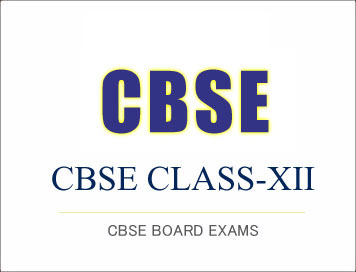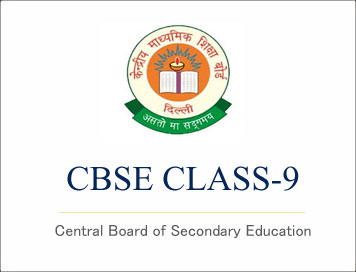CBSE PORTAL : CBSE Class-12 Syllabus 2018-19 (Biology) | |
| CBSE Class-12 Syllabus 2018-19 (Biology) Posted: 31 Mar 2018 01:34 AM PDT |
| Unit | Title | No. of Periods | Marks |
| VI | Reproduction | 30 | 14 |
| VII | Genetics and Evolution | 40 | 18 |
| VIII | Biology and Human Welfare | 30 | 14 |
| IX | Biotechnology and its Applications | 30 | 10 |
| X | Ecology and Environment | 30 | 14 |
| Total | 160 | 70 |
Unit-VI Reproduction : 30 periods
Chapter-1: Reproduction in Organisms
Reproduction, a characteristic feature of all organisms for continuation of species; modes of reproduction - asexual and sexual reproduction; asexual reproduction - binary fission, sporulation, budding, gemmule formation, fragmentation; vegetative propagation in plants.
Chapter-2: Sexual Reproduction in Flowering Plants
Flower structure; development of male and female gametophytes; pollination - types, agencies and examples; outbreeding devices; pollen-pistil interaction; double fertilization; post fertilization events - development of endosperm and embryo, development of seed and formation of fruit; special modes-apomixis, parthenocarpy, polyembryony; Significance of seed dispersal and fruit formation.
Chapter-3: Human Reproduction
Male and female reproductive systems; microscopic anatomy of testis and ovary; gametogenesis - spermatogenesis and oogenesis; menstrual cycle; fertilisation, embryo development upto blastocyst formation, implantation; pregnancy and placenta formation (elementary idea); parturition (elementary idea); lactation (elementary idea).
Chapter-4: Reproductive Health
Need for reproductive health and prevention of Sexually Transmitted Diseases (STDs); birth control - need and methods, contraception and medical termination of pregnancy (MTP); amniocentesis; infertility and assisted reproductive technologies - IVF, ZIFT, GIFT (elementary idea for general awareness).
Unit-VII Genetics and Evolution : 40 Periods
Chapter-5: Principles of Inheritance and Variation
Heredity and variation: Mendelian inheritance; deviations from Mendelism – incomplete dominance, co-dominance, multiple alleles and inheritance of blood groups, pleiotropy; elementary idea of polygenic inheritance; chromosome theory of inheritance; chromosomes and genes; Sex determination - in humans, birds and honey bee; linkage and crossing over; sex linked inheritance - haemophilia, colour blindness; Mendelian disorders in humans - thalassemia;
chromosomal disorders in humans; Down's syndrome, Turner's and Klinefelter's syndromes.
Click Here To Download Full Syllabus
Courtesy: CBSE
<< Go Back to Main Page
CBSE Class-12 Syllabus 2018-19 (Chemistry)
Posted: 31 Mar 2018 01:20 AM PDT
CBSE Class-12 Syllabus 2018-19 (Chemistry)
Rationale
Higher Secondary is the most crucial stage of school education because at this juncture specialized discipline based, content -oriented courses are introduced. Students reach this stage after 10 years of general education and opt for Chemistry with a purpose of pursuing their career in basic sciences or professional courses like medicine, engineering, technology and other applied areas. Therefore, there is a need to provide learners with sufficient conceptual background of Chemistry, which will make them competent to meet the challenges of academic and professional courses after the senior secondary stage.
The new and updated curriculum is based on disciplinary approach with rigour and depth taking care that the syllabus is not heavy and at the same time it is comparable to the international level. The knowledge related to the subject of Chemistry has undergone tremendous changes during the past one decade. Many new areas like synthetic materials, bio -molecules, natural resources, industrial chemistry are coming in a big way and deserve to be an integral part of chemistry syllabus at senior secondary stage. At international level, new formulations and nomenclature of elements and compounds, symbols and units of physical quantities floated by scientific bodies like IUPAC and CGPM are of immense importance and need to be incorporated in the updated syllabus. The revised syllabus takes care of all these aspects. Greater emphasis has been laid on use of new nomenclature, symbols and formulations, teaching of fundamental concepts, application of concepts in chemistry to industry/ technology, logical sequencing of units, removal of obsolete content and repetition, etc.
Objectives
The curriculum of Chemistry at Senior Secondary Stage aims to:
• promote understanding of basic facts and concepts in chemistry while retaining the excitement of chemistry.
• make students capable of studying chemistry in academic and professional courses (such as medicine, engineering, technology) at tertiary level.
• expose the students to various emerging new areas of chemistry and apprise them with their relevance in future studies and their application in various spheres of chemical sciences and technology.
• equip students to face various challenges related to health, nutrition, environment, population, weather, industries and agriculture.
• develop problem solving skills in students.
• expose the students to different processes used in industries and their technological applications.
• apprise students with interface of chemistry with other disciplines of science such as physics, biology, geology, engineering etc.
• acquaint students with different aspects of chemistry used in daily life.
• develop an interest in students to study chemistry as a discipline.
• integrate life skills and values in the context of chemistry.
CLASS XII (2018-19)
THEORY
Total Periods (Theory 160 + Practical 60)
Time: 3 Hours
70 Marks
| Unit No. | Title | No. of Periods | Marks |
| Unit I | Solid State | 10 |
23 |
| Unit II | Solutions | 10 | |
| Unit III | Electrochemistry | 12 | |
| Unit IV | Chemical Kinetics | 10 | |
| Unit V | Surface Chemistry | 08 | |
| Unit VI | General Principles and Processes of Isolation of Elements | 08 |
19 |
| Unit VII | p-Block Elements | 12 | |
| Unit VIII | d -and f -Block Elements | 12 |
|
| Unit IX | Coordination Compounds | 12 | |
| Unit X | Haloalkanes and Haloarenes | 10 |
28 |
| Unit XI | Alcohols, Phenols and Ethers | 10 | |
| Unit XII | Aldehydes, Ketones and Carboxylic Acids | 10 | |
| Unit XIII | Organic Compounds containing Nitrogen | 10 | |
| Unit XIV | Biomolecules | 12 | |
| Unit XV | Polymers | 08 | |
| Unit XVI | Chemistry in Everyday Life | 06 | |
|
| Total | 160 | 70 |
Click Here To Download Full Syllabus
Courtesy: CBSE
<< Go Back to Main Page
| You are subscribed to email updates from CBSE PORTAL : CBSE, ICSE, NIOS, JEE-MAIN, AIPMT Students Community. To stop receiving these emails, you may unsubscribe now. | Email delivery powered by Google |
| Google, 1600 Amphitheatre Parkway, Mountain View, CA 94043, United States | |

